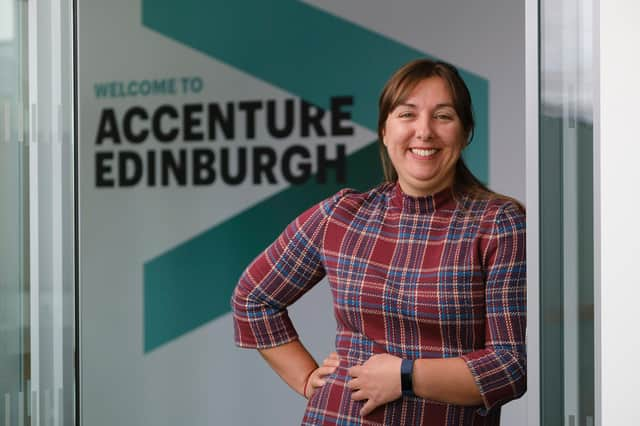Tackling climate change is a must, not a maybe - Michelle Hawkins


Companies are recognising that tackling climate change has become a “must,” not a “maybe” for the world. That’s why, ahead of the summit in Glasgow, many leading businesses, including Accenture, have pledged to achieve net-zero emissions by 2050 or sooner, and to achieve significant emission reductions in pursuit of that goal by 2030.
Yet while the health, economic and social crises of recent times have raised people’s expectations about the role of business in solving global problems, progress on most of the United Nations’ 17 Sustainable Development Goals has stalled or been eroded.
Advertisement
Hide AdAdvertisement
Hide AdWhile businesses are being scrutinised like never before, and the scale of the social and economic upheaval precipitated by the pandemic also offers a strong impetus for change, many organisations still struggle to make enough progress.
When Accenture interviewed business leaders at the height of the pandemic, 73% of them identified “becoming a truly sustainable and responsible business” as a top priority for their organisation over the next three years. Yet there is still a tendency for leaders to worry that sustainable impact lies in opposition to financial value which can be a barrier to achieving results.
So how can they turn that purpose into profit and drive toward sustainability faster?
Leadership qualities are a crucial part of the equation. Indeed, it remains the case that those companies that foster five elements of responsible leadership – including focus on Mission & Purpose, Technology & Innovation and Stakeholder Inclusion – will be in a stronger position than their competitors.
But such leadership qualities alone no longer suffice. Yes, customers, employees and other stakeholders increasingly expect to see strong, responsible leadership in play but too often such change borders on the cosmetic. Leaders can fall into the habit of bolting on their new focus rather than fully embedding it throughout their business. To become a truly sustainable organisation, business and operating model transformation is necessary. But the pre-requisite is to build a stakeholder-centric organization.
New research from Accenture and the World Economic Forum, Shaping the Sustainable Organization, finds that those steeped in the principles of responsible leadership are more likely to drive fundamental organisational change by strengthening their ‘Sustainability DNA’ – the management practices, systems and processes that shape behaviours and decision-making capabilities to deliver tangible outcomes.
Sustainability DNA comprises 21 practices and 10 enablers, that drive human connections, collective intelligence and accountability at all levels. Sustainable organisations are purpose-led businesses which inspire their people and partners to deliver lasting financial performance, equitable impact and societal value that earns and retains the trust of all stakeholders.
All of which sounds good in theory but what does it mean in reality? Essentially, strong Sustainability DNA is associated with higher financial value for companies as well as higher environmental, social and governance (ESG) impact.
Advertisement
Hide AdAdvertisement
Hide AdOur Sustainable Organization Index grades almost 4,000 companies according to market-facing evidence of ESG-supporting practices in 146 areas. This found a strong, positive relationship between how they scored in the index and how they performed in terms of financial performance.
In other words, the strength of a company's Sustainability DNA is central to the ability of businesses to operate both profitably and mindfully.
However, on average, companies score 52 out of 100 on the Sustainable Organization Index, and there is huge potential to increase performance. The key is for organisations to commit to a continuous cycle of actions to generate value for all stakeholders; one that pursues progress continually as circumstances change, new stakeholder expectations arise and new organisational capabilities emerge.
At Accenture, we are infusing sustainability across everything we do and with everyone we work with to deliver on the promise of sustainable value – not just because it’s the right thing to do, but also because we believe it will be the most powerful force of change in a generation and is one of our greatest responsibilities
For businesses in Scotland anxious about living up to the “must not maybe” challenge that COP26 represents, now is the time to strengthen their own Sustainability DNA to drive change and secure a truly just transition for all of their stakeholders.
Michelle Hawkins, Managing Director, Accenture Scotland
Comments
Want to join the conversation? Please or to comment on this article.